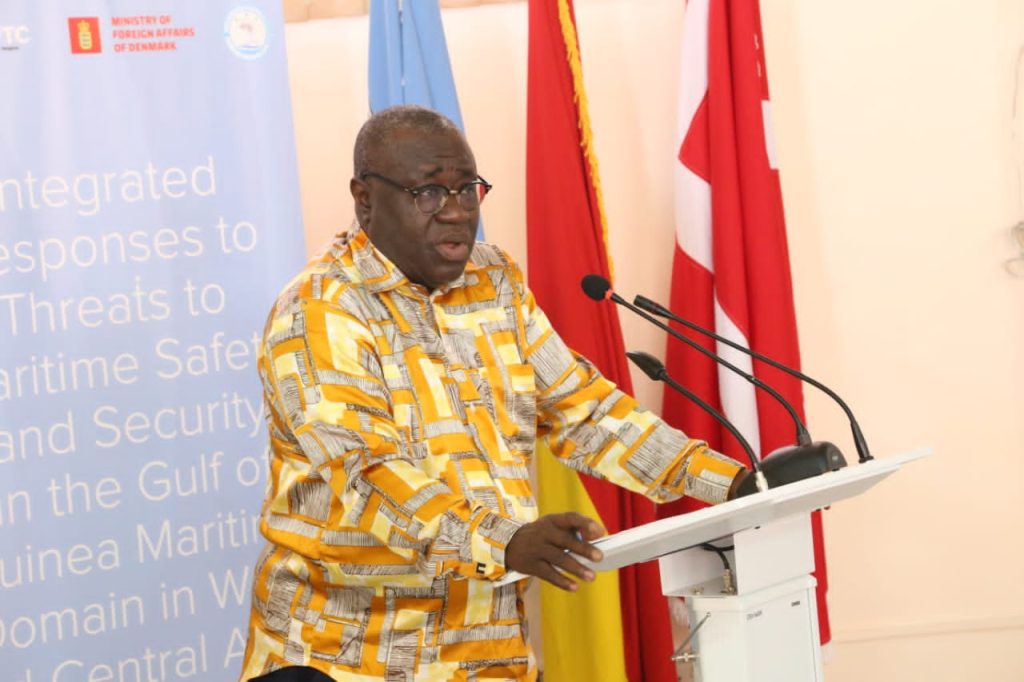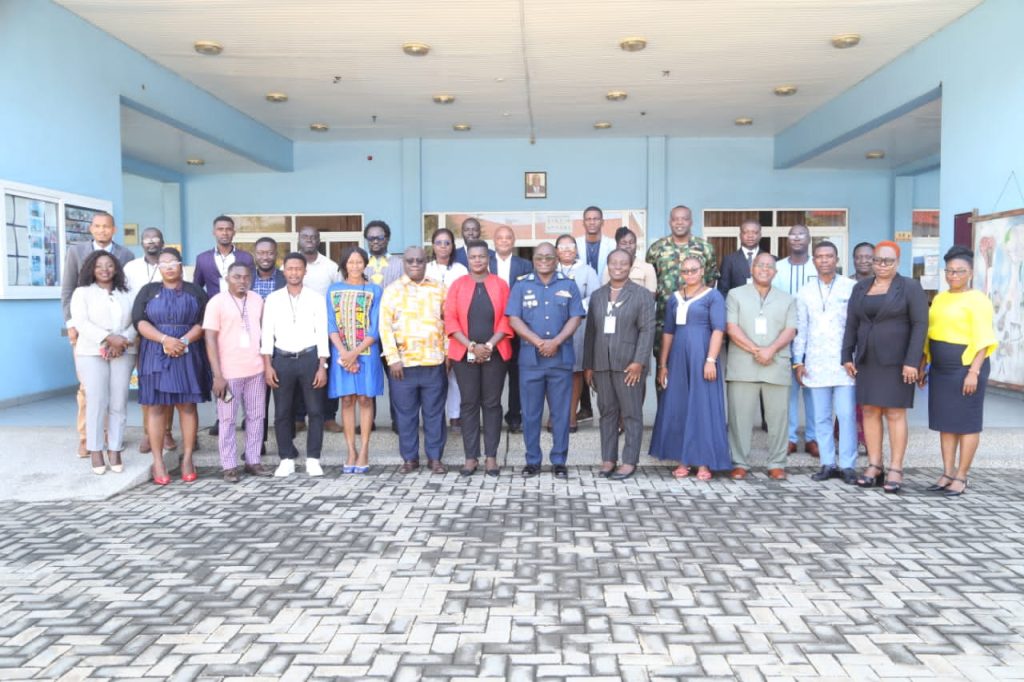By Eric Appah Marfo
Accra, Oct. 03, GNA – The Kofi Annan International Peacekeeping Training Centre (KAIPTC), Monday commenced a training course on Maritime Security reporting for journalists and maritime professionals.
The five-day course will enhance the knowledge base and skillsets of media and maritime security professionals to effectively contribute to the attainment of Maritime Security in the Gulf of Guinea (GoG).
It will also Introduce participants to the nexus between media reportage and maritime security.
A total of 25 journalists/ media liaisons and maritime security actors drawn from maritime institutions such as the navy, marine police, maritime authority and port administration across West and Central Africa are partaking in the course.

The topics include Introduction to Maritime Security, Introduction to the Blue Economy, Media and Maritime Security, Legal and Policy Frameworks on Maritime Security, Law and Ethics in Maritime Security Reporting, Gender, Livelihoods andMaritime Security and Information Management in Maritime Security.
Air Commodore George Arko-Dadzie, Deputy Commandant, KAIPTC, during the opening ceremony, said the course formed part of the capacity-building strategy of the: “Integrated Responses to Threats to Maritime Safety and Security in the GoG Domain,” a five-year project generously supported by the Government of Denmark.
He expressed gratitude to the Government of Denmark.
The Deputy Commandant said the GoG region presented a maritime seascape with a unique potential for maritime commerce and development.
He said the region’s rich maritime resources had attracted both state and non-state actors, with the latter especially exploitibg the inadequate control of the maritime domain to engage in illicit activities.
Air Cdre Arko-Dadzie said according to the the United Nations Office on Drugs and Crime (UNODC), the threat of piracy had cost the region lives, stability, and over $1.9 billion in financial losses every year.
He said from a high of 123 incidents in 2020, the first six months of 2023 had seen 14 incidents – 10 of which were armed robbery at sea cases- as reported by the International Maritime Bureau.
Air Cdre Arko-Dadzie said the steady decline in maritime piracy was as a result of concerted efforts by national authorities, with support from regional and international partners; regular deployment of naval assets by international partners; and piracy convictions in Nigeria and Togo in 2021, among others.
He said in addition to maritime piracy and armed robbery at sea, the GoG region continued to grapple with other maritime crimes, including illegal fishing, human trafficking, marine pollution, toxic waste dumping, illicit arms and drug trade, among others.

Professor Kwesi Aning, Director, Faculty of Academic Affairs and Research, KAIPTC, said the blue economy had the potential of generating 300 billion dollars and creating 49 million jobs.
He said the ocean also contributed three trillion dollars to the Gross Domestic Product (GDP) and could add three billion dollars to Africa’s economy annually.
Prof Aning said oceans contributed three to five per cent of Global GDP.
He said fisheries and Aquaculture assured livelihoods of 10 to 12 per cent of global population.
Prof Aning said an understanding of the challenges hindering the exploitation of the blue economy would help policymakers and stakeholders to develop solutions.
He said media practitioners had a critical role in promoting transparency, accountability, and public awareness of maritime developments and urged them to drive public debate on maritime issues.
GNA